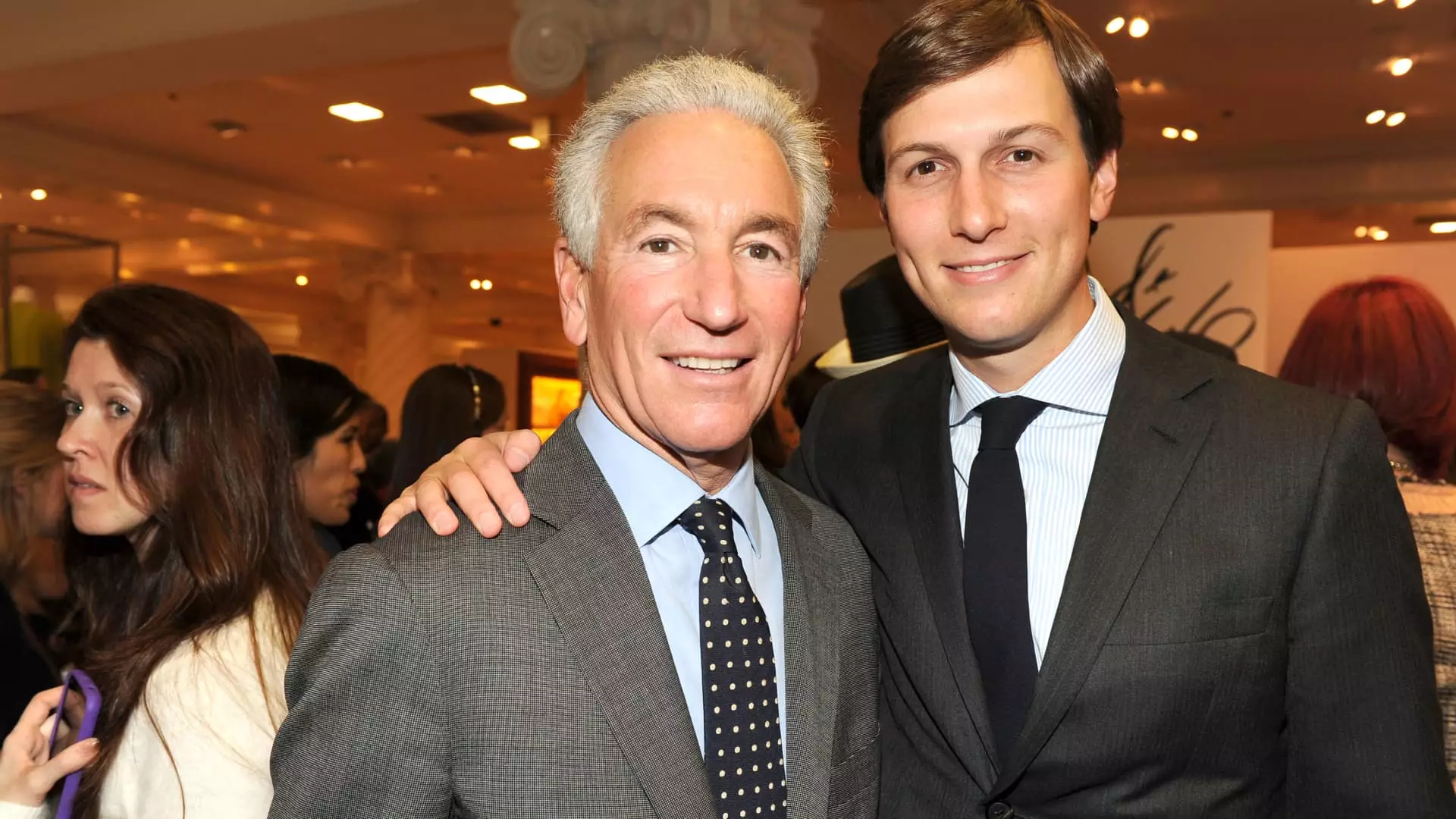Recently, President-elect Donald Trump made headlines with his recommendation for Charles Kushner, a prominent real estate developer and father of Jared Kushner, to serve as the ambassador to France. In a post shared on the platform Truth Social, Trump praised Kushner as “a tremendous business leader, philanthropist, & dealmaker,” framing the nomination as a move that would bolster American diplomatic efforts. However, while Trump paints a rosy picture of Kushner’s credentials, the reality of his past raises substantial ethical questions about this proposed appointment.
Charles Kushner’s ascent in the business world is shadowed by a tumultuous legal history. In 2004, he pleaded guilty to multiple charges that included tax evasion, witness tampering, and making illegal campaign contributions. These serious offenses stemmed from an incident where he sought revenge against a brother-in-law cooperating with federal investigators, demonstrating a reckless disregard for both law and family ties. Kushner’s strategy involved hiring a prostitute to entrap his brother-in-law, documenting the encounter with hidden cameras, and then sending the resultant video to intimidate his own family. Such morally reprehensible actions led to a two-year prison sentence, which has since prompted significant scrutiny regarding his fitness for public office.
Despite his controversial past, Charles Kushner’s relationship with Trump is intertwined with a network of political alliances. The pair have known each other for years, with their families being connected through the marriage of Jared Kushner and Ivanka Trump in 2009. This familial relationship, however, raises questions about the potential for nepotism in political appointments, particularly in a role as significant as that of an ambassador. Critics may argue that Kushner’s nomination is an example of prioritizing personal connections over qualifications, an ongoing concern in the Trump administration’s approach to governance.
Reactions to Kushner’s potential appointment have been mixed. Supporters from the real estate community may laud his business acumen and philanthropic contributions. However, prominent critics, including Chris Christie—former U.S. attorney and governor of New Jersey—have expressed vehement disapproval, deeming Kushner’s past actions “one of the most loathsome, disgusting crimes” he ever encountered in office. Christie’s comments highlight a broader concern within the political landscape about Kushner’s ability to represent the U.S. effectively on the international stage, given his troubled history.
As the nomination process unfolds, the public and political realms will be watching closely. While Trump’s endorsement of Charles Kushner is rooted in personal affection and shared business interests, it ignites a crucial discussion about ethics, accountability, and the standards we hold for public officials. The ramifications of this proposed appointment extend beyond just diplomatic relations with France; they touch upon the integrity of the political system itself. With a past as controversial as Kushner’s, many wonder if this is truly a step forward or a step backward for American diplomacy. Only time will reveal the true implications of this nomination.

